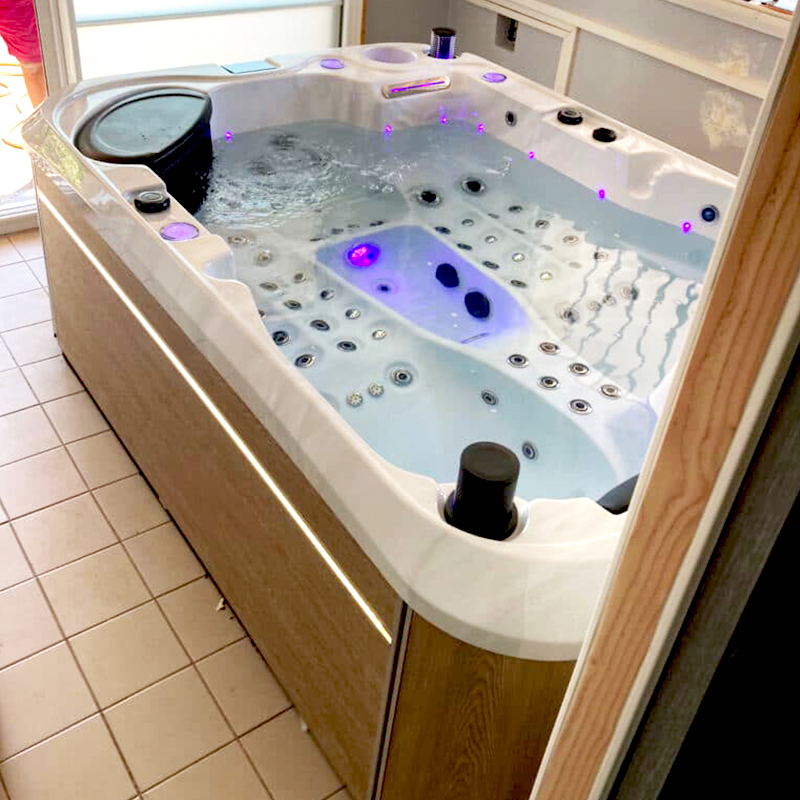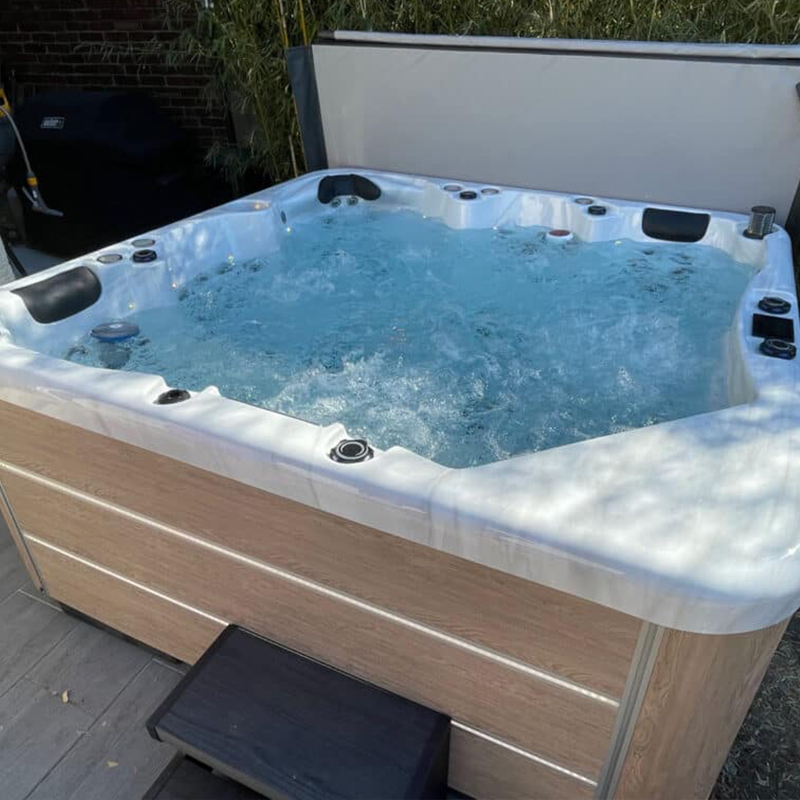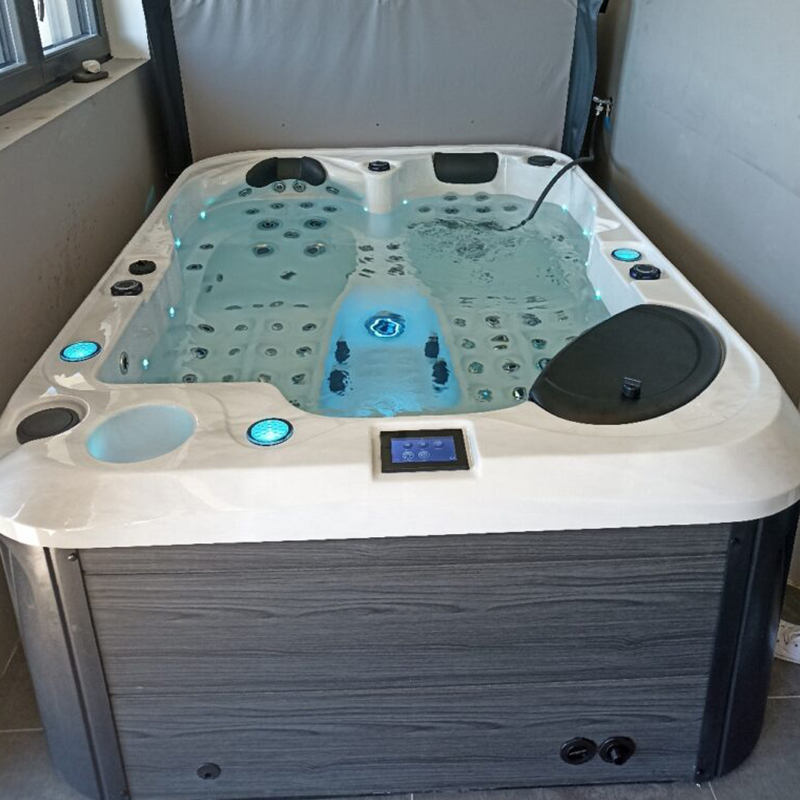
What are the disadvantages of owning a hot tub?
2024-07-04 15:30As a comfortable and relaxing home leisure facility, hot tubs have become increasingly popular in many families in recent years. Its warm water flow and massage function can help people relieve stress and relax.
However, despite the many benefits of hot tubs, owning a hot tub also comes with some potential disadvantages and challenges. This article will delve into the main disadvantages of owning a hot tub to help consumers have a more comprehensive understanding of the relevant issues when making a purchasing decision.

1. High initial cost
① Equipment purchase cost
Purchasing a high-quality hot tub usually requires a considerable investment. Depending on the brand, size, function and material of the tub, the price may range from a few thousand yuan to tens of thousands of yuan. For many families, this is a relatively high expenditure.
② Installation cost
The installation of a hot tub also requires professionals to complete, involving pipe connections, power wiring and infrastructure construction. These additional installation costs, plus possible renovation projects such as strengthening the foundation or expanding the room, will increase the overall cost.
2. Maintenance and operation costs
① Regular maintenance
Hot tubs require regular maintenance to keep them running properly. This includes cleaning filters, changing water quality chemicals, inspecting and repairing pipes and pumps, etc. Ignoring these maintenance tasks may cause equipment failure and shorten the life of the hot tub.
② Energy consumption
The process of heating and circulating water requires a lot of electricity or natural gas. Especially in cold seasons, maintaining the water temperature of the hot tub will significantly increase household energy consumption, thereby increasing electricity or natural gas bills.
③ Waste of water resources
Hot tubs usually require a lot of water to fill, and the water needs to be replaced regularly to maintain hygiene. Frequent replacement and heating of large amounts of water not only increases water bills, but also wastes water resources.

3. Health and safety risks
① Risk of infection
If the water quality of the hot tub is not properly managed, bacteria and fungi may multiply rapidly in a warm and humid environment, increasing the risk of infection. For example, Legionella is a common water-borne pathogen that can cause severe respiratory infections.
② Accidents
The slippery surface of the hot tub increases the risk of falls and slips, especially for the elderly and children. In addition, soaking in hot water for too long may cause dehydration, low blood pressure, and even fainting, especially for people with cardiovascular disease.
4. Environmental impact
① High energy consumption
The high energy consumption of hot tubs has caused a certain burden on the environment. Especially in areas powered by fossil fuels, increased energy consumption means more carbon emissions, exacerbating climate change.
② Chemical use
In order to keep the water hygienic, hot tubs need to use a variety of chemicals, such as chlorine and bromine. These chemicals are not only potentially irritating to the user's skin and respiratory tract, but may also pollute the environment.
5. Restrictions and inconveniences
① Seasonal use restrictions
Although some hot tubs can be used year-round, outdoor hot tubs in extreme climates, especially in cold areas, are restricted in use. Even indoor hot tubs may be used less frequently in the hot summer.
② Space occupation
Hot tubs take up a lot of space. For small homes or families with limited space, installing a hot tub may require giving up other facilities or rearranging the home space.
③ Noise issues
The pump and heater of a hot tub make noise when running, which may affect the rest of the family and the lives of neighbors. Especially at night or in a quiet environment, the constant noise may become a nuisance.

6. Psychological and emotional stress
① Maintenance stress
Owning a hot tub means taking on ongoing maintenance and management responsibilities. This may cause additional psychological pressure on family members, especially when faced with equipment failure or high repair costs.
② Frequency of use
Many consumers are enthusiastic when they first buy hot tubs, but the frequency of use may gradually decrease over time. Hot tubs become a luxury item with low frequency of use, resulting in a decrease in the actual benefits of investment.
Conclusion
Although hot tubs provide many relaxation and health benefits, consumers should fully consider their potential disadvantages and challenges before purchasing. From high initial costs and maintenance fees, to health and safety risks, to environmental impacts and usage restrictions, owning a hot tub requires comprehensive consideration of many factors.
Before making a purchase decision, it is recommended that consumers carefully weigh the pros and cons and choose the most suitable family leisure facility for themselves according to their needs, budget and lifestyle. If you decide to buy a hot tub, be sure to make an adequate maintenance plan, regular inspection and maintenance to ensure the long-term use and safety of the equipment. At the same time, reasonably plan the frequency and method of use to maximize the advantages of hot tubs and add more comfort and fun to family life.
